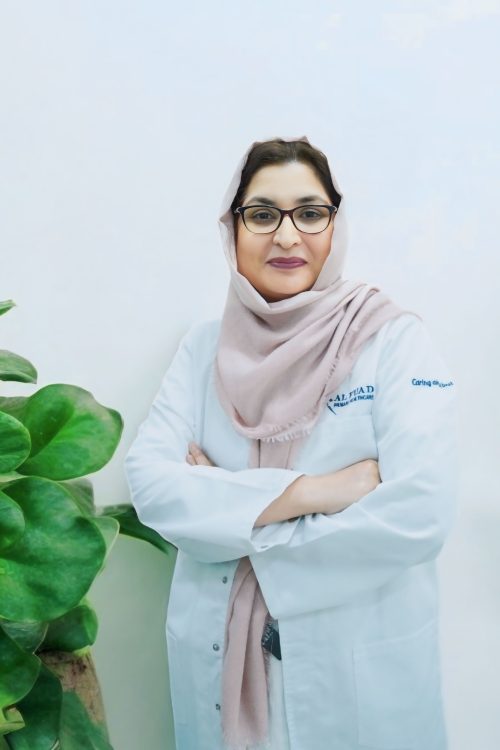Project Description
Obstetrics and Gynecology
Al Fuad Medical Center – We think that all patients have the right to make well-informed decisions about their health care. We provide a supportive environment for couples throughout their pregnancy in order to better prepare them for this once-in-a-lifetime experience. We follow the most up-to-date obstetrics and gynecologic treatment guidelines, and our doctors are trained experts in their disciplines.
- The spontaneous loss of a pregnancy before the 20th week. About 10 to 20 percent of known pregnancies end in miscarriage.
- When a fertilised egg implants itself outside of the womb, usually in one of the fallopian tubes. The fallopian tubes are the tubes connecting the ovaries to the womb. If an egg gets stuck in them, it won’t develop into a baby and your health may be at risk if the pregnancy continues.
- The loss of three or more consecutive pregnancies affects 1% of couples trying to conceive.
- A disease of the male or female reproductive system is defined by the failure to achieve a pregnancy after 12 months or more of regular unprotected sexual intercourse.
- A permanent method of birth control. Sterilization procedures for women are called tubal ligation. The procedure for men is called vasectomy.
- Used to correct an abnormal condition that has been detected during a diagnostic hysteroscopy. If an abnormal condition was detected during the diagnostic hysteroscopy, an operative hysteroscopy can be performed at the same time, avoiding the need for a second surgery.
- A type of surgical procedure that allows a surgeon to access the inside of the abdomen (tummy) and pelvis without having to make large incisions in the skin. This procedure is also known as keyhole surgery or minimally invasive surgery.
- The time in a woman’s life when her period stops. It usually occurs naturally, most often after age 45. Menopause happens because the woman’s ovaries stop producing the hormones estrogen and progesterone. A woman has reached menopause when she has not had a period for one year.
- A specialized field of gynecology and obstetrics that deals with female pelvic medicine and reconstructive surgery. Urogynecologists are doctors who diagnose and treat pelvic floor conditions such as weak bladder or pelvic organ prolapse (your organs drop because the muscles are weak).
- Infrequent, but symptoms such as pruritus, pain, burning, and irritation or the finding of a mass or growth can cause significant patient concern.
- A procedure to closely examine your cervix, vagina and vulva for signs of disease. During colposcopy, your doctor uses a special instrument called a colposcope. Your doctor may recommend a colposcopy if your Pap test result is abnormal.
- efers as the health of women, medical practice dealing with the health of the female reproductive system (vagina, uterus, and ovaries)
- Refers to the health services provided to women, babies, and families throughout the whole pregnancy, during labour and birth, and after birth for up to six weeks.
- Specializes in diagnosing and treating cancers that are located on a woman’s reproductive organs.
- The period shortly before, during, and immediately after giving birth.
- The care given to the mother and her newborn baby immediately after the birth and for the first six weeks of life
- Procedures aimed at assessing the health of a woman’s reproductive system. The general examination usually makes use of a speculum for a view of the vagina and cervix. More specialized procedures include the Pap smear for the detection of cancer of the cervix.



